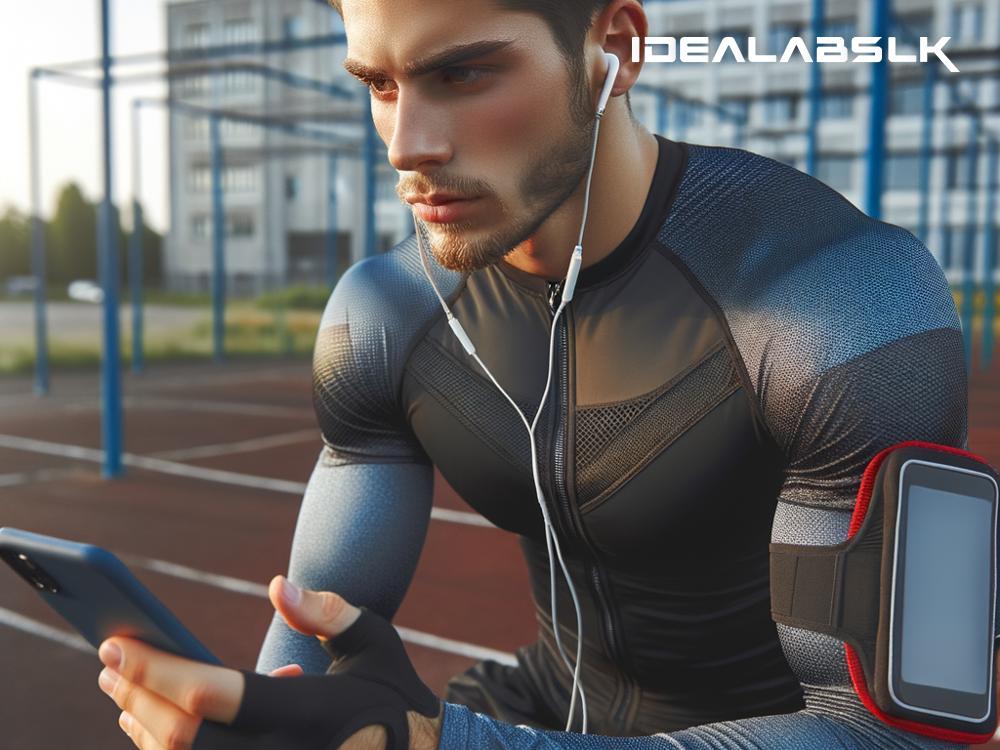How AI Enhances Real-Time Feedback in Smart Sports Gear
In the rapidly evolving world of sports, technology has become a game-changer. Among the many innovations, smart sports gear, powered by Artificial Intelligence (AI), stands out, especially when it comes to providing real-time feedback to athletes. This technological marvel is not only revolutionizing how athletes train but also enhancing their performance in unparalleled ways. Let's dive into how AI is making a monumental impact on smart sports gear.
Understanding Smart Sports Gear
Smart sports gear refers to athletic equipment embedded with sensors and connected technologies. These range from smart shoes that measure your running pace and form, to wearable devices that track your heart rate and calories burned. The integration of AI transforms these tools into personal coaches, offering insights and feedback that were once only available to professional athletes with access to advanced training facilities.
The Role of AI in Real-Time Feedback
-
Precision and Accuracy: AI algorithms analyze the vast amounts of data collected by sensors in real-time. This means that the feedback you receive isn't just generic advice; it's personalized, taking into account your unique patterns, strengths, and areas for improvement. Whether it’s correcting your posture during a golf swing or suggesting adjustments to your running stride, AI ensures the advice is spot-on.
-
Instant Corrections: One of the standout benefits of AI in smart sports gear is the ability to provide instant feedback. Gone are the days of waiting for your coach's review. Now, if you're bending your knees incorrectly during a squat, your smart leggings might vibrate to correct you immediately. This immediacy helps in fixing mistakes on the spot, drastically improving the learning curve.
-
Injury Prevention: AI doesn't just focus on enhancing performance; it’s also shaping up to be a crucial tool in preventing injuries. By analyzing your movements, it can predict when you’re pushing too hard or if there’s a risk of injury due to poor form. This predictive capability can advise you to adjust your intensity or even rest, minimizing the risk of overuse injuries.
-
Motivation Boost: Real-time feedback also plays a significant psychological role by providing immediate validation or encouragement. For instance, beating your personal best in a sprint and receiving instant acknowledgment from your smartwatch can be incredibly gratifying. This positive reinforcement motivates athletes to keep pushing their limits.
-
Training Customization: AI in smart sports gear allows for the creation of highly customized training programs. It considers your progress, goals, and even how you're feeling on a particular day to suggest workouts. This level of personalization ensures that the training is always aligned with your current fitness level and objectives, making it more effective.
Examples of AI in Action
-
Smart Running Shoes: These shoes come equipped with sensors that analyze your running form, pace, and foot landing. The AI then provides feedback on how to run more efficiently, reducing the risk of injuries and improving your performance.
-
Wearable Fitness Trackers: Beyond just tracking steps and heart rates, these devices now utilize AI to give you a comprehensive analysis of your workouts. They can suggest recovery times, adapt your training plan based on your progress, and even offer nutritional advice.
-
Smart Soccer Balls: Embedded with sensors, these balls can measure the force, trajectory, and spin of your kicks. AI uses this data to provide tips on improving your technique, making it an invaluable tool for aspiring soccer players.
The Future Looks Smart and Sporty
The integration of AI in sports gear is just the beginning. As technology advances, we can expect even more sophisticated systems capable of providing deeper insights. From virtual reality-based training sessions to gear that adapts its form to enhance performance, the possibilities are endless.
In conclusion, AI-enhanced smart sports gear is revolutionizing how athletes train, perform, and improve. By providing precise, real-time feedback, it helps prevent injuries, boosts motivation, and personalizes training in ways we've never seen before. As we continue to embrace these innovations, the future of sports training looks brighter – and smarter – than ever.

